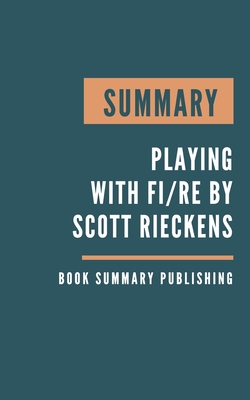
### An Introduction to F.I.R.E. (Financial Independence, Retire Early)
F.I.R.E. (Financial Independence, Retire Early) has emerged as a dynamic modern movement embraced by countless individuals across the globe who desire more than the typical 9-to-5 routine and the usual retirement trajectory. The fundamental concept behind F.I.R.E. is attaining sufficient financial stability so that work becomes optional, thereby reclaiming your time and crafting the life you genuinely desire.
The recent excerpt from *F.I.R.E. for Dummies*, provided by a respected mentor from the Millionaire Money Mentors forum, presents a straightforward yet thorough introduction to the F.I.R.E. concept. Whether you are unfamiliar with F.I.R.E. or know someone who could benefit from its insights, this book might serve as an excellent starting point for the journey toward financial independence.
Let’s explore some pivotal aspects highlighted in the shared excerpt along with further insights into the F.I.R.E. movement.
—
### F.I.R.E. Philosophies: The Guiding Principles
One of the most appealing features of F.I.R.E. is its adaptability and inclusiveness. It does not impose strict guidelines you must adhere to, but there are several key philosophies that most individuals in the F.I.R.E. community uphold to achieve the ultimate objective: regaining mastery over their time through financial freedom. Here are some of these principles, as emphasized in the excerpt:
1. **Living Below Your Means**:
Embracing a frugal lifestyle and eliminating unnecessary expenditures is crucial. You can prioritize raising your income, reducing your expenses, or both. The aim is to create a considerable gap between your earnings and your spending.
2. **Sustaining a High Savings Rate**:
While conventional financial guidance typically recommends saving 15-20% of your income, the F.I.R.E. community often strives for more, frequently achieving a savings rate of 50% or higher. The greater your savings, the quicker you will reach financial independence.
3. **Investing in Simple and Low-Cost Choices**:
Most F.I.R.E. enthusiasts promote the use of low-cost index funds. These funds provide diversification and are relatively hands-off, letting compounding work its magic over time.
4. **Reducing Tax Liabilities**:
A vital lesson is to comprehend the tax code and discover methods to lessen your tax obligations. Taking advantage of tax-advantaged accounts, such as 401(k)s and IRAs, is a common practice.
5. **Enhancing Key Aspects of Your Life**:
Many within the F.I.R.E. community focus on optimizing areas like travel hacking (using rewards points to travel at no cost), house hacking (generating income by leasing a part of your home), and real estate ventures.
6. **Commitment to Lifelong Learning and Action**:
A sense of curiosity and consistent action is fundamental to achieving success in the F.I.R.E. process. You must continue to learn and implement optimal financial strategies to enhance and expedite your journey toward F.I.R.E.
7. **Cultivating Community and Connections**:
F.I.R.E. doesn’t have to be a solitary endeavor, even if it may initially appear unconventional. There is a burgeoning community, both online and offline, filled with individuals who share similar goals and provide encouragement and advice.
8. **Savoring the Journey**:
Attaining financial independence is not merely about crunching numbers. It’s also vital to prioritize mental well-being and savor the journey. Ultimately, the objective of F.I.R.E. is to enhance your enjoyment of life—beginning with the journey itself.
—
### Who is F.I.R.E. For?
F.I.R.E. draws in a varied array of individuals—those nearing retirement seeking an early escape from traditional jobs, as well as aspiring entrepreneurs looking to fund personal endeavors with financial backing.
The excerpt presents various “whys” motivating individuals:
– For some, a challenging day at work led to a transformative decision to take control of their freedom.
– Others feel confined by their jobs while longing to pursue creative interests or significant personal projects.
Regardless of the specific reasons, the overarching intent remains consistent—to liberate individuals from the necessity of working solely for income. Once people attain financial independence, time transforms into an asset they autonomously direct. This change enables individuals to choose how they wish to spend their days, whether that entails engaging in passion projects, spending time with family, or making meaningful contributions to society.
—
### Challenging Stereotypes and Common Misunderstandings
As the F.I.R.E. movement gained traction, perceptions formed based on broad generalizations. In its inception, F.I.R.E. was frequently linked to a particular demographic—mainly high earners, technology professionals, or extreme savers with minimalist lifestyles. However, as the excerpt clarifies, the